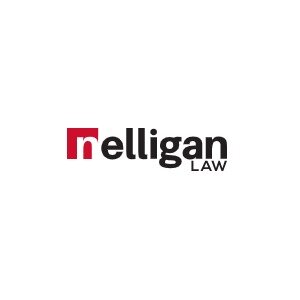Best Bad Faith Insurance Lawyers in Ottawa
Share your needs with us, get contacted by law firms.
Free. Takes 2 min.
List of the best lawyers in Ottawa, Canada
About Bad Faith Insurance Law in Ottawa, Canada
Bad faith insurance law refers to illegal practices by insurance companies, like intentionally denying a policyholder's claim without reasonable cause or refusing to adequately investigate a claim in a timely manner. These unfair practices are considered 'bad faith' and are regulated under the Ontario Insurance Act. This law protects policyholders in Ottawa from undue treatment by insurance providers, offering legal remedies when these corporations fail to uphold their obligations.
Why You May Need a Lawyer
Effectively challenging an insurance company's decisions and practices can be complex without the necessary legal expertise. Instances when you may need a lawyer include refusal of your insurance claims without a reasonable explanation, significant delay in handling your claims, inadequate investigation of your claims, or receiving a settlement offer well below the rightful value. Navigating through these scenarios can be overwhelming, hence a bad faith insurance lawyer can be invaluable by providing insightful guidance and robustly advocating on your behalf.
Local Laws Overview
The Ontario Insurance Act guides on matters relating to bad faith insurance in Ottawa. The act states that insurers must handle claims fairly and in good faith. Particularly, they must acknowledge, investigate, and act promptly on claims. Additionally, complete transparency regarding policy details must be provided. Noncompliance results in penalties, including but not limited to, potential damages awarded to the policyholder.
Frequently Asked Questions
1. What constitutes bad faith by an insurance company?
Bad faith encompasses any unfair practices by insurance companies like unwarranted denial or delay of claims, providing a lowball settlement offer, and failing to investigate a claim properly.
2. What legal actions can be taken if I am a victim of bad faith insurance?
An experienced lawyer can help you file a lawsuit against the insurance company. If proven, you may be entitled to damages.
3. What kind of compensation can I receive?
Compensation usually covers the original amount the insurance company should have paid, plus any additional damages such as emotional distress, legal fees, and other costs.
4. How long does a bad faith insurance lawsuit take?
The length varies wildly based on the complexity of the case and the willingness of the insurer to settle. It can take anywhere from a few months to several years.
5. How can I prove bad faith insurance?
Proof requires establishing that the insurer's denial or delay of policy benefits was unreasonable or without proper cause. Documents such as correspondence, adjuster's notes, or proof of prompt notification can help.
Additional Resources
The Financial Services Commission of Ontario provides resources and information for issues related to insurance, including bad faith insurance. The Law Society of Ontario can help with finding lawyers who specialize in this area.
Next Steps
If you believe that you are a victim of a bad faith insurance practice, the first step is to consult with a lawyer who specializes in bad faith insurance. They can provide personalized advice based on your situation. Make sure to keep all relevant documentations related to your claim as they will be vital evidence in your case.
Lawzana helps you find the best lawyers and law firms in Ottawa through a curated and pre-screened list of qualified legal professionals. Our platform offers rankings and detailed profiles of attorneys and law firms, allowing you to compare based on practice areas, including Bad Faith Insurance, experience, and client feedback.
Each profile includes a description of the firm's areas of practice, client reviews, team members and partners, year of establishment, spoken languages, office locations, contact information, social media presence, and any published articles or resources. Most firms on our platform speak English and are experienced in both local and international legal matters.
Get a quote from top-rated law firms in Ottawa, Canada — quickly, securely, and without unnecessary hassle.
Disclaimer:
The information provided on this page is for general informational purposes only and does not constitute legal advice. While we strive to ensure the accuracy and relevance of the content, legal information may change over time, and interpretations of the law can vary. You should always consult with a qualified legal professional for advice specific to your situation.
We disclaim all liability for actions taken or not taken based on the content of this page. If you believe any information is incorrect or outdated, please contact us, and we will review and update it where appropriate.








